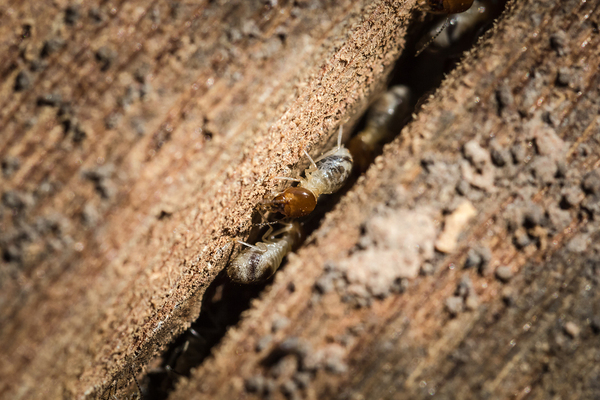What Home Buyers Need to Know about Termite Damage
Posted on Friday, January 6, 2017
_600x.jpg)
Property for sale: the property looks beautiful, but does the house have a secret? Termite damaged homes can hurt your bottom line. Before you buy a house that has termite damage, you need to know whether you're signing up for an expensive, long term project or a short term repair.
What Do Termites Do To a Home?
In nature, termites are helpful. Their job is to break down wood and build up soil. They enthusiastically eat wood until it disintegrates. Unfortunately for people, we like to make our homes out of wood that's been cut, and this dead wood looks like lunch for the termites. Termites can cause significant structural damage to a home, and even though they're small, they can make a house uninhabitable. Even if a home is mostly made out of brick or is a newer home, it can also suffer from termite problems. Here's what you need to ask about when you're buying a house with termite damage.
Are There Signs of Termite Damage in the Walls?
You might think that it would be obvious if there were termites eating a home, but unfortunately damage is not always obvious until it is severe. Also, termites can not only eat wood, they can also move through plaster and move within metal siding to access wood inside a home. Even if a house is not made entirely of wood, it can still be susceptible to termite damage.
Signs of termite damage can look like water damage. When water softens and rots a wall, it starts to bulge and buckle. It can also look like it has ripples in the wallpaper or the paint. The same happens with termite damage. There may also be a mild smell similar to the smell you'd have if water damage caused mildew to grow.
Can You See Signs of Termites Outside the House?
Some termites are called subterranean termites. These termites live underground, and they move between the surface and below-ground areas using tunnels. They often tunnel in the damp soil around a home's foundation. The tunnels are about the width of a pencil. Even if there are no termites in the tunnels, this doesn't mean that they're completely gone: they may have just moved to a different area of the house.
When you look at new home or work with a home inspector, ask the inspector to examine this area for signs of termites. Even if there are no visible signs inside the home, there could be hidden damage if termites have entered the home. You may also see winged termites moving away from an infested area.

Are There Termites in the Furniture?
A house with beautiful, old furniture can also harbor new guests: drywood termites. These termites will live in walls, floors, or in older furniture. Look for dry, smooth pellets near walls and furniture. If you see them, this could mean that there are termites in the furniture, and they may have moved into other furniture, cabinets, or the walls and the floor.
What Should You Do If You Suspect Termite Damage?
You've found a home that you love. It's in the right neighborhood, and it has a beautiful property that will suit your family. If it has termite damage, should it be off the list?
First, talk with a home inspector. If the inspector finds signs of termite damage, schedule a termite inspection that will go into more detail regarding the possible damage.
You'll also need to get an estimate for repairs. These repairs should include termite treatments and actual structural repairs. You'll need to negotiate these repairs with the current owners. Ideally, you'll negotiate treatment that can occur before you become owners of the home, or you can get a reduced price for the home based on the projected costs of the termite remediation.
If you're purchasing a newer home in an area that's prone to termites, ask to see if it has been pre-treated for termites. That way, you know that it will be harder for termites to cause damage to the home.
Termite damage adds an element of uncertainty to any property for sale. Through diligent inspection, an estimate, and financial negotiations, you may be able to restore a home so that it's your ideal property. However, you also need to consider the time it will take to restore the home, and you'll need to think about the potential for cost overruns. Depending on the extent of termite damage, you'll need to think carefully before you purchase a house that has more extensive termite damage.
We're here to help you find a property, and we know about the challenges you'll face. As you look for the right home, search properties to find the right one for you.

